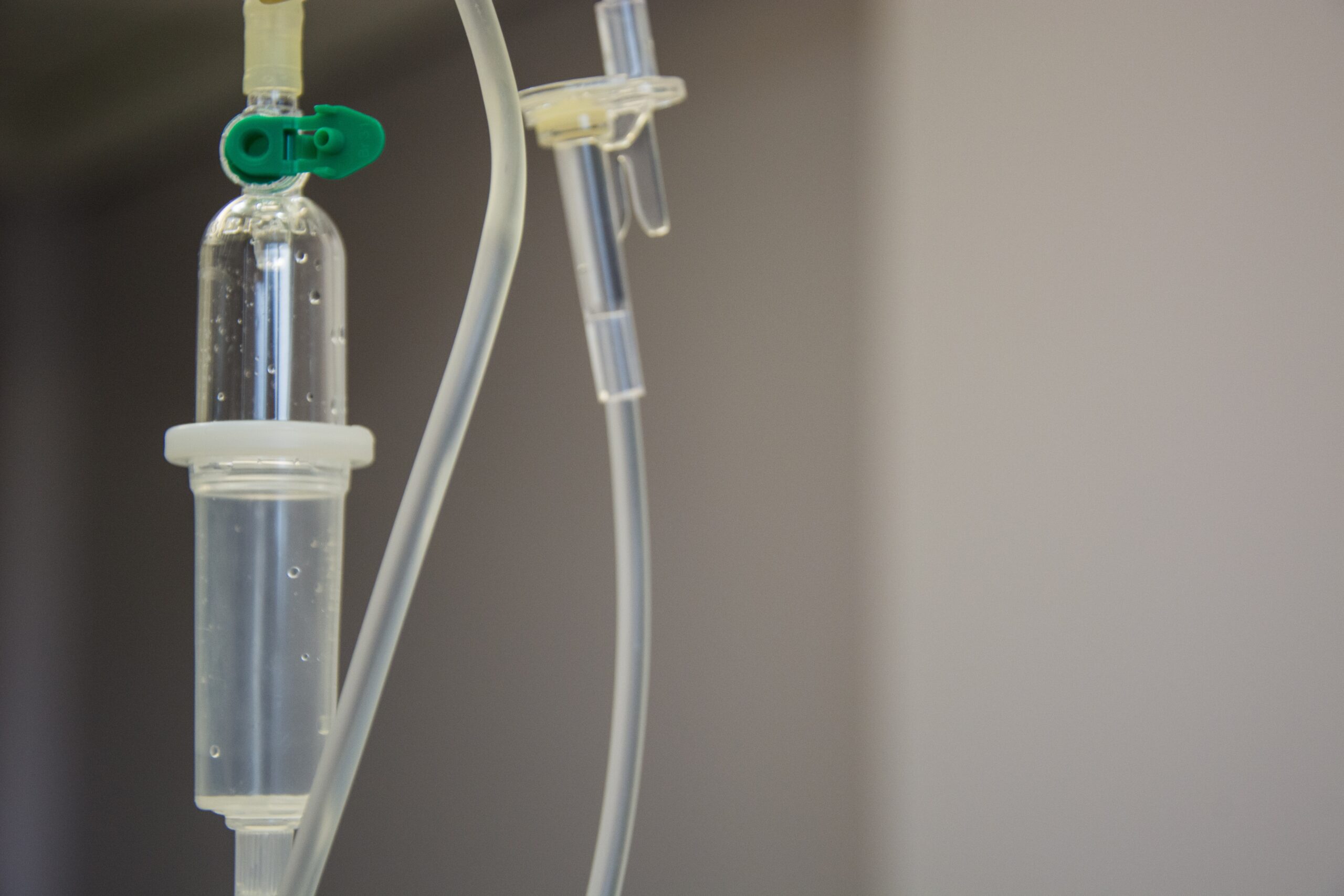Maintaining a healthy diet is not only crucial for overall well-being, but it also plays a significant role when it comes to prostate health. Your dietary choices can have a profound impact on the functioning of your prostate, affecting its health and potentially reducing the risk of certain conditions. By understanding the relationship between diet and prostate health, you can make informed choices that contribute to a healthier prostate and a happier life.

Understanding Prostate Health
Definition of Prostate Health
Prostate health refers to the overall well-being of the prostate gland, which is an essential part of the male reproductive system. The prostate gland is located just below the bladder and surrounds the urethra. Its main function is to produce and secrete prostate fluid, which forms a part of semen.
Importance of Prostate Health
Maintaining prostate health is crucial for men of all ages. A healthy prostate plays a vital role in fertility and sexual function. Moreover, it is responsible for the proper ejaculation process. As men age, the risk of developing prostate-related issues, such as prostate enlargement, prostatitis, and prostate cancer, increases. By prioritizing prostate health, you can minimize the likelihood of encountering these conditions and enjoy a better quality of life.
Common Prostate Health Issues
There are several common prostate health issues that men may face. One of the most prevalent issues is benign prostatic hyperplasia (BPH), which involves an enlargement of the prostate gland. This condition can lead to urinary symptoms such as frequent urination, weak urine flow, and difficulty emptying the bladder completely. Another common prostate health issue is prostatitis, which is the inflammation of the prostate gland. This condition may cause pain or discomfort in the pelvic area, urinary symptoms, and sometimes even fever. Lastly, prostate cancer is a significant concern. It is the second most common cancer among men worldwide. Identifying and addressing these issues early is important for a successful treatment outcome.
Role of Diet in General Health
Influence of Diet on Overall Health
Diet plays a key role in maintaining overall health, and the same goes for prostate health. The food we consume provides our bodies with essential nutrients, vitamins, and minerals necessary for various bodily functions. A healthy diet helps support the immune system, maintain a healthy weight, control blood sugar levels, and reduce the risk of chronic diseases such as heart disease, diabetes, and certain types of cancer.
Link Between Diet and Chronic Diseases
Scientific research has established a strong link between diet and chronic diseases, including prostate cancer. Certain dietary factors can increase the risk of developing chronic diseases, while others can promote good health and reduce the risk. Consuming a diet high in processed foods, saturated fats, and refined sugars has been associated with an increased risk of chronic diseases. On the other hand, a diet rich in fruits, vegetables, whole grains, and lean proteins has been shown to have a protective effect against these diseases.
Link Between Diet and Prostate Health
Research on Diet and Prostate Health
Scientific studies have extensively investigated the relationship between diet and prostate health. While the exact mechanisms are still being explored, research suggests that certain dietary patterns and nutrients can influence prostate health outcomes. These studies have provided valuable insights into the potential benefits of dietary modifications in maintaining prostate health and reducing the risk of prostate issues.
Effect of Diet Modification on Prostate Health
Several studies have shown that making specific dietary modifications can positively impact prostate health. Incorporating a diet rich in plant-based foods such as fruits, vegetables, and whole grains has been associated with a lower risk of prostate enlargement and prostate cancer. Additionally, reducing the consumption of processed foods, red meat, high-fat dairy products, and sugary beverages has shown potential benefits in maintaining a healthy prostate. Adopting a balanced and nutritious diet is essential for supporting prostate health and overall well-being.
Nutrients Essential for Prostate Health
Protein and Prostate Health
Protein is an essential macronutrient that plays a crucial role in maintaining prostate health. It is responsible for the growth, repair, and function of cells in the prostate gland and throughout the body. Consuming adequate amounts of lean proteins, such as chicken, turkey, fish, and legumes, is important for supporting prostate health. However, it is advisable to limit the consumption of red meats and processed meats, as they have been linked to an increased risk of prostate issues.
Vitamins and Minerals Important for Prostate Health
Certain vitamins and minerals have been associated with prostate health benefits. Vitamin E, for example, is an antioxidant that helps protect cells from damage caused by free radicals. It is found in nuts, seeds, and green leafy vegetables. Selenium is another important mineral for prostate health, as it has been linked to a lower risk of prostate cancer. Good food sources of selenium include Brazil nuts, seafood, and whole grains. Adequate intake of vitamin D, zinc, and magnesium is also important for maintaining a healthy prostate.
Role of Omega 3 in Prostate Health
Omega-3 fatty acids, particularly those found in fish oils, have received significant attention for their potential benefits in supporting prostate health. These fatty acids have anti-inflammatory properties, which may help reduce inflammation in the prostate gland and lower the risk of prostate-related issues. Consuming fatty fish such as salmon, mackerel, and sardines, or taking fish oil supplements, can provide a good source of omega-3 fatty acids.
Role of Hydration in Prostate Health
Link Between Hydration and Prostate Health
Staying properly hydrated is vital for maintaining prostate health. Sufficient hydration ensures the adequate flushing out of toxins and waste products from the body, including the prostate gland. Dehydration can lead to concentrated urine, which may irritate the prostate and contribute to the development of prostate issues. Adequate hydration also supports urinary function and helps prevent urinary tract infections.
Recommendations for Proper Hydration
To maintain optimal hydration, it is recommended to drink an adequate amount of fluids throughout the day. Water is the best choice, as it is calorie-free and essential for overall health. Aim to drink at least eight glasses of water per day, or more if you are physically active or live in a hot climate. In addition to water, you can also consume other hydrating fluids, such as herbal teas and low-sugar beverages. Limiting the intake of caffeinated and alcoholic beverages is advised due to their diuretic effects.
Foods Beneficial for Prostate Health
Fruits and Vegetables
Including a variety of fruits and vegetables in your diet is crucial for maintaining prostate health. These foods are packed with vitamins, minerals, and antioxidants that can help protect the prostate gland from cell damage and reduce the risk of prostate-related issues. Berries, tomatoes, broccoli, spinach, and carrots are particularly beneficial for prostate health due to their rich nutrient content.
Whole Grains
Whole grains, such as brown rice, quinoa, whole wheat bread, and oatmeal, are an excellent source of fiber and essential nutrients. They provide sustained energy, promote digestive health, and help maintain a healthy weight. Including whole grains in your diet can contribute to a lower risk of prostate complications and support overall prostate health.
Healthy Fat Sources
Consuming healthy fats is essential for prostate health. Foods rich in monounsaturated and polyunsaturated fats, such as avocados, olive oil, nuts, and seeds, have been associated with a reduced risk of prostate issues. These fats help lower inflammation in the body and support cardiovascular health. However, it is important to consume these fats in moderation, as they are calorie-dense.
Protein-rich Foods
Incorporating lean protein sources into your diet is important for prostate health. Opt for poultry, fish, legumes, and tofu instead of red meats, processed meats, and high-fat dairy products. Lean proteins provide essential amino acids and help maintain muscle mass, which is crucial for overall health and well-being.

Foods to Avoid for Prostate Health
Processed Foods and Prostate Health
Processed foods, which are often high in unhealthy fats, salt, and artificial additives, should be limited for the sake of prostate health. These foods contribute to inflammation in the body and increase the risk of chronic diseases, including prostate issues. To support your prostate health, opt for whole, unprocessed foods whenever possible.
Sugar and Prostate Health
Excess sugar consumption has been linked to various health issues, including an increased risk of prostate complications. A high intake of sugary foods and beverages can lead to weight gain, insulin resistance, and chronic inflammation, all of which are detrimental to prostate health. It is advisable to limit your intake of sugary snacks, desserts, sodas, and other sweetened beverages.
Dairy Products and Prostate Health
While dairy products can be part of a balanced diet, it is important to be mindful of their consumption for prostate health. Some studies suggest that a high intake of dairy products, especially whole milk, may increase the risk of prostate issues. If you choose to include dairy in your diet, opt for low-fat or non-fat options and moderate your portion sizes.
Impact of Obesity on Prostate Health
Study Findings on Obesity and Prostate Health
Obesity has been identified as a risk factor for various health conditions, including prostate issues. Studies have found that obese individuals are more likely to develop prostate cancer, experience prostate enlargement, and encounter other prostate-related complications. Maintaining a healthy weight is essential for reducing the risk and progression of prostate issues.
How Proper Diet Can Help Maintain Healthy Weight
Adopting a healthy diet is a crucial component of maintaining a healthy weight and reducing the risk of obesity-related prostate complications. Consuming a balanced diet that includes a variety of nutrient-dense foods, such as fruits, vegetables, whole grains, lean proteins, and healthy fats, can help control calorie intake, support weight loss efforts, and promote overall prostate health.
Role of Physical Activity in Prostate Health
Combination of Diet and Exercise in Prostate Health
In addition to a healthy diet, regular physical activity is important for maintaining prostate health. Exercise helps control body weight, improve cardiovascular health, enhance immune function, and reduce inflammation in the body. Combining a nutritious diet with regular exercise can have a synergistic effect on prostate health.
Examples of Effective Exercises
Engaging in moderate-intensity aerobic exercises, such as brisk walking, jogging, swimming, or cycling, can benefit prostate health. Aim for at least 150 minutes of aerobic exercise per week, spread across multiple days. Additionally, incorporating strength training exercises that target major muscle groups can help maintain muscle mass and support overall prostate health. It is important to consult with a healthcare professional before starting any exercise program.
Practical Tips for a Prostate-healthy Diet
Meal Planning Tips
To follow a prostate-healthy diet, focus on including a variety of fruits, vegetables, whole grains, lean proteins, and healthy fats in your meals. Opt for homemade meals instead of processed foods or takeouts, as they often contain unhealthy fats and excessive sodium. Experiment with different cooking techniques, such as grilling, baking, or steaming, to maximize the flavor and nutrient content of your meals. Plan your meals in advance to ensure a well-balanced and prostate-healthy diet.
Healthy Snacking Options
Choose nutrient-dense snacks to support prostate health. Fresh fruits, raw vegetables with hummus, plain yogurt with berries, and nuts/seeds are excellent choices. Avoid snacks high in added sugars, unhealthy fats, and artificial additives. It is important to practice portion control to avoid excessive calorie intake.
Recommended Dietary Changes
Incorporate the following dietary changes to promote prostate health:
- Increase your intake of fruits and vegetables, aiming for at least five servings per day.
- Choose whole grains over refined grains whenever possible.
- Opt for lean protein sources, such as poultry, fish, legumes, and tofu.
- Consume healthy fats, such as avocados, olive oil, nuts, and seeds, in moderation.
- Limit processed foods, sugary snacks, desserts, and sweetened beverages.
- Choose low-fat or non-fat dairy products in moderation.
- Stay properly hydrated by drinking adequate amounts of water throughout the day.
- Combine a healthy diet with regular physical activity for optimal prostate health.
By implementing these recommended dietary changes, you can support your prostate health, reduce the risk of prostate-related issues, and lead a healthier and more fulfilling life. Remember to consult with a healthcare professional for personalized advice and to address any specific concerns you may have regarding your prostate health.


